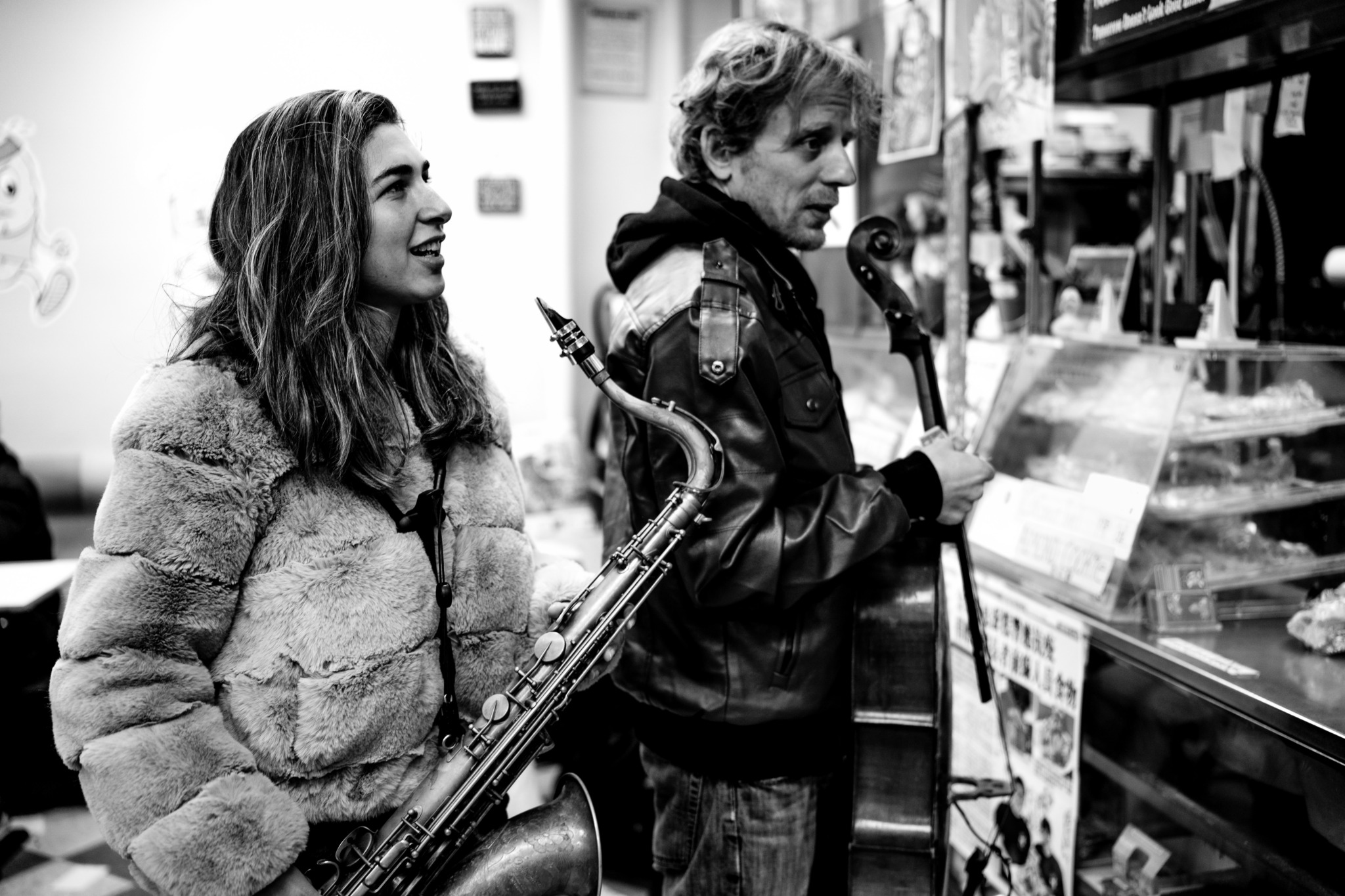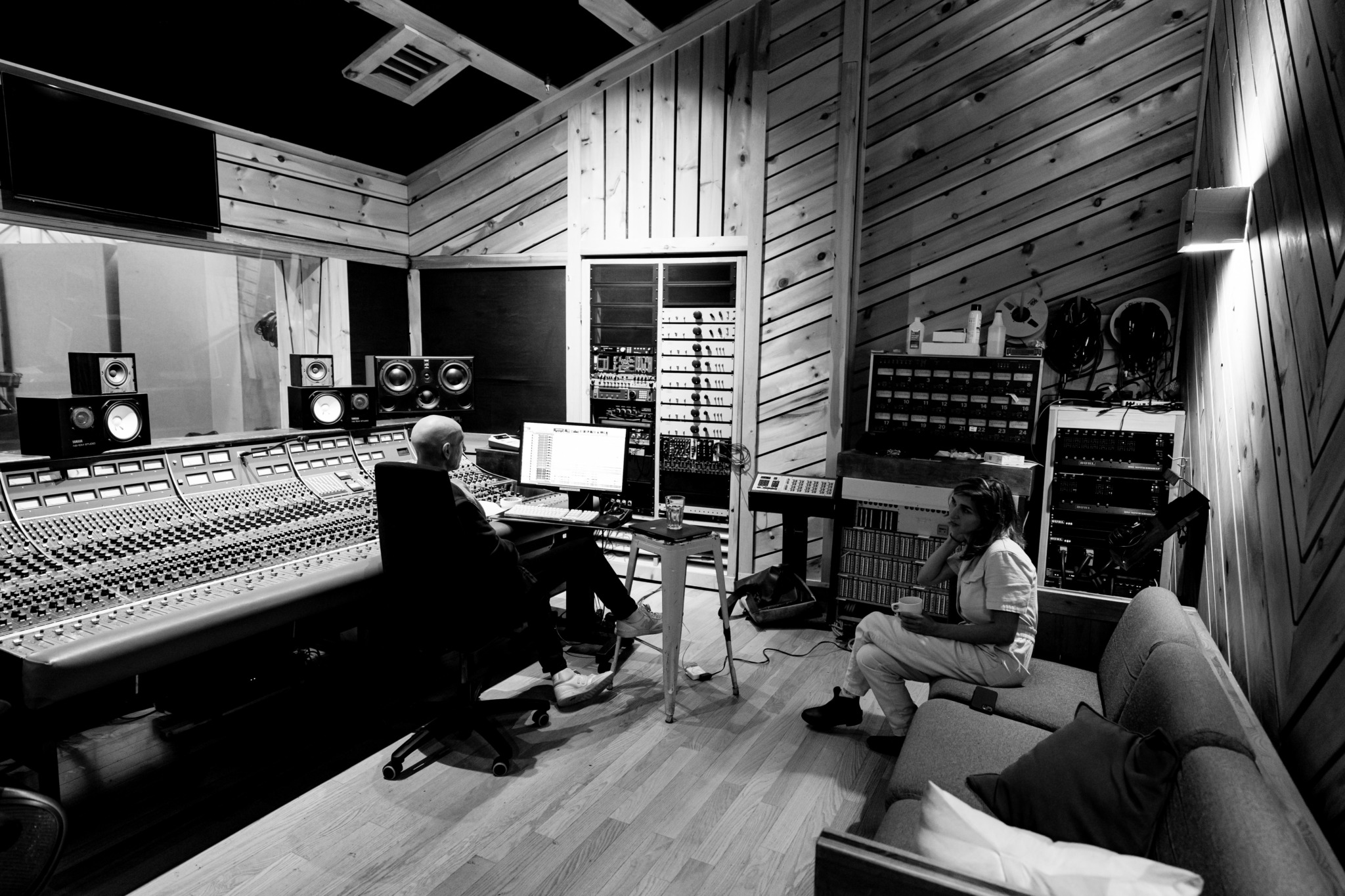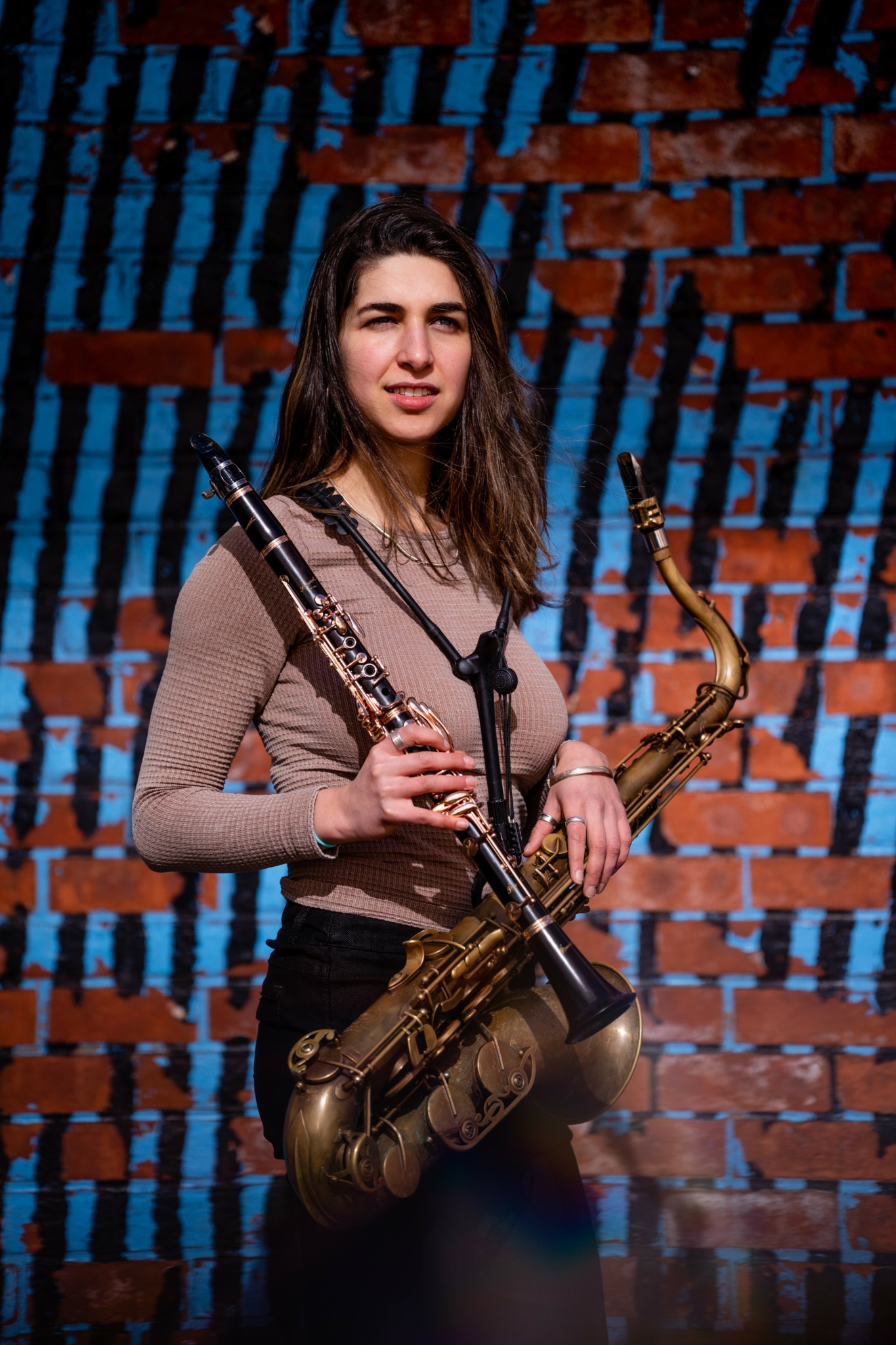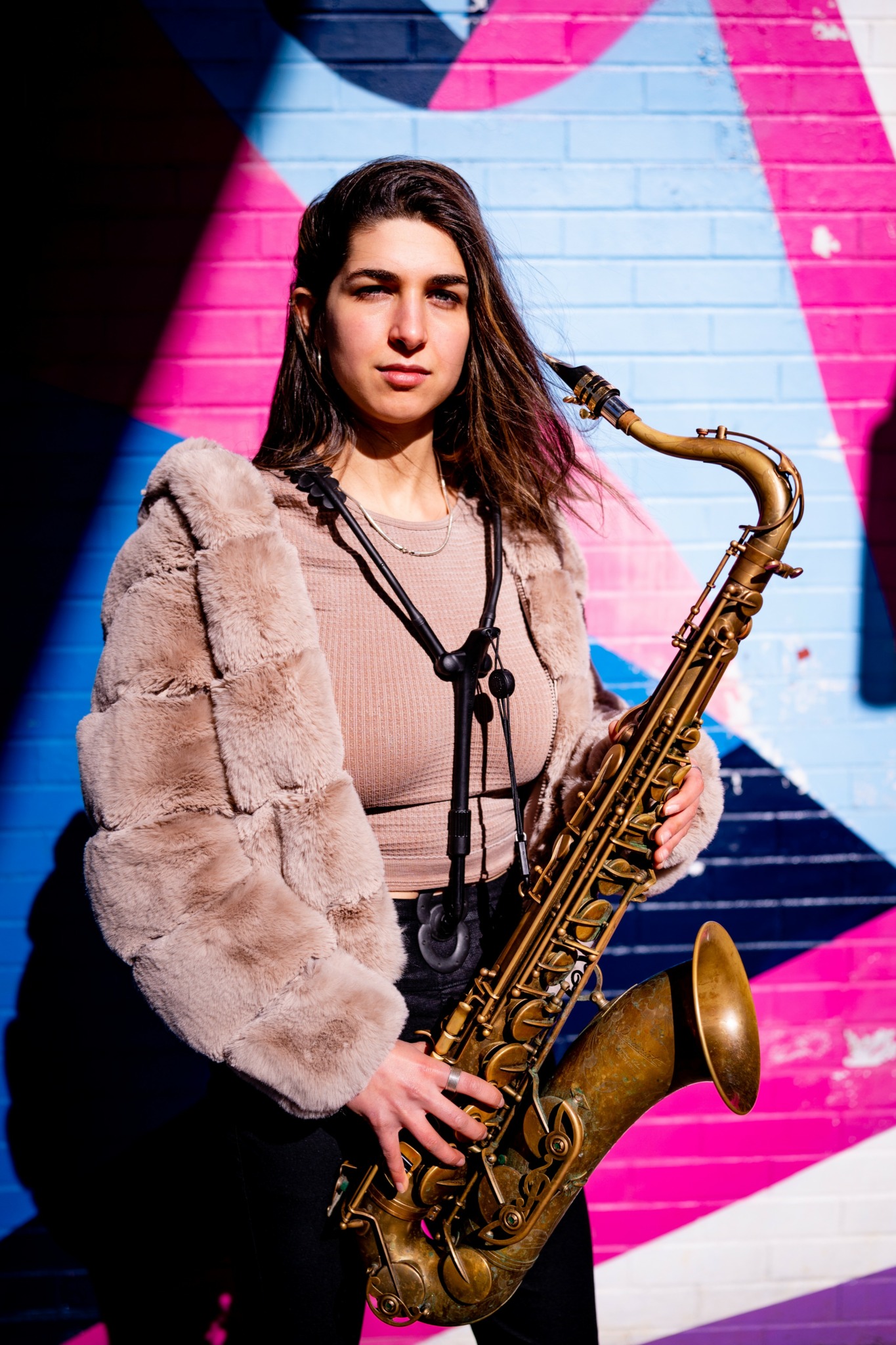We recently connected with Hillai Govreen and have shared our conversation below.
Hillai, appreciate you joining us today. How did you learn to do what you do? Knowing what you know now, what could you have done to speed up your learning process? What skills do you think were most essential? What obstacles stood in the way of learning more?
I started playing music when I was six, and a lot of my foundation came from my first piano teacher, Tania Kozlova. She treated me like an adult and sparked my love for classical music. Even then, I was already writing little pieces in the style of what I was learning. Around the same time, I was also part of Ukuleles for Peace, a project that brought together Arab and Jewish kids to play ukulele and sing in English, Arabic, and Hebrew. That experience exposed me to all kinds of music- folk songs, Dixieland, jazz, Arabic music and gave me an early sense of showmanship and performing in front of people.
When I was 12, I picked up the clarinet, and later the saxophone. That’s when I discovered how much I enjoyed playing with others, in both orchestras, chamber groups and bands. I was also drawn to improvisation, which naturally led me into jazz. My cousin, brother, and best friend were already playing, and they pulled me in.
For me, the most essential skill is listening, really listening to music that inspires you, noticing what moves you and copying it. I also try to approach music like it’s the very first time I’m touching my instrument-staying curious and using it to discover new things about myself.
What slowed me down the most has been self-doubt. I can be very critical of myself, and that sometimes blocks creativity. When I started studying jazz at Shtriker, a Jazz program in association with New School New York, most of the other students already had years of experience, and I was just beginning. I was also one of the only women in the program, which made it harder to feel confident. I would get very anxious and scared to play with people in my environment and approach musicians I looked up to, ask them specific questions, or even call them for a gig.
I still struggle with self doubt, but when I moved to NYC I started playing with more experienced musicians which is really the best way to improve. I had the chance to play with artists like George Cables, Steve Cardenas, Eric McPherson, Café Da Silva, Greg Glassman and many others. Having great teachers is important, but I’ve learned even more on the bandstand.
Studying yoga and yoga philosophy in India has also been a big influence on my musical path. It’s helped me improve my concentration, develop breathing techniques, and use meditation to clear my mind so that new musical ideas can come through. Training the mind to observe itself helps me identify mental blockages I have and even rewire patterns so that I can be more present in the process.
Awesome – so before we get into the rest of our questions, can you briefly introduce yourself to our readers.
I’m a clarinetist, saxophonist, and composer based in New York City. Over the past few years, I’ve been focused on my debut album, Every Other Now, a collaboration with bassist and composer Ben Meigners. It features Steve Cardenas on guitar, Noah Stoneman and Eden Ladin on piano, Eric McPherson on drums, Greg Glassman on trumpet, and Café Da Silva on percussion. The album was released a month ago on Fresh Sound, and we just did a CD release at The Jazz Gallery.
I’m influenced by a wide range of music, and it keeps changing, I draw inspiration from anything that moves me, music as well as other forms of art such as literature, poetry, films, visual art, life experiences outside music. Lately, I’ve been listening to an Ethiopian pianist i discovered called Emahoy Tsege Mariam, her solo piano music sounds like it exists in its own world and is timeless. I’m very influenced by Geri Allen, Gil Evans, Frank Glover, Randy Weston, Jaki Byard, Wayne Shorter, Quincy Jones, Nina Simone, Les McCann Carla Bley and the list goes on, these are just a few that come in mind. I also love Brazilian music and have been listening to a lot of Filo Machado. Toninho Horta came to NY and i got to hang with him and come to his workshops. It was very special for me to meet him in person because my friend NItsan Kolko and I did a whole project of arranging and orchestrating his music for a 9 piece band. I also love exploring scores of composers I like, Mahler is always on the top of the list. My friends Sammy, Nitsan and I were even thinking of organizing score readings together and nerding out in a group setting.
For me, music is the easiest way to express whatever it is I’m feeling. It’s always been an outlet, My mom says I used to throw tantrums and be completely unbearable before I started playing. I really love collaborating with other artists because it’s a way to get inside someone else’s mind and see how they think. And whenever I hit a creative blockage, having someone else there often brings ideas I wouldn’t have thought of on my own.
In your view, what can society to do to best support artists, creatives and a thriving creative ecosystem?
I think the best way to support artists and creatives is to give them the resources and freedom to actually make their work. My brother lives in Berlin, I’ve seen how organizations in Europe generally support artists in a better way. Subsidizing creative projects would allow artists to focus on their practice without constantly worrying about finances. In NY, even some of the best musicians I know have to have side hustles or day jobs.
I also believe society should function more like a meritocracy: artists who are genuinely talented and working hard should be supported based on their work, not on marketing, networking, or fitting into a particular “mission statement.” In the U.S., grants exist, but the application process can be so time-consuming that it takes away from making music. I wish it could be simpler: submit your music, and if people like it, they fund it, without all the extra text about how it will “change the world.” The focus should be on the art itself and giving artists the freedom to explore, experiment, and create.
I also think that many music teachers end up teaching primarily because they need the income, not necessarily because they’re inspired to teach. Teaching is a huge responsibility—perhaps one of the most important roles in society. You’re guiding a young generation and need to be honest and passionate to help them truly improve. Being “nice” or making the lesson enjoyable shouldn’t be the primary goal; growth and learning must come first.
In your view, what can society to do to best support artists, creatives and a thriving creative ecosystem?
I think the best way to support artists and creatives is to give them the resources and freedom to actually make their work. My brother lives in Berlin, I’ve seen how organizations in Europe generally support artists in a better way. Subsidizing creative projects would allow artists to focus on their practice without constantly worrying about finances. In NY, even some of the best musicians I know have to have side hustles or day jobs.
I also believe society should function more like a meritocracy: artists who are genuinely talented and working hard should be supported based on their work, not on marketing, networking, or fitting into a particular “mission statement.” In the U.S., grants exist, but the application process can be so time-consuming that it takes away from making music. I wish it could be simpler: submit your music, and if people like it, they fund it, without all the extra text about how it will “change the world.” The focus should be on the art itself and giving artists the freedom to explore, experiment, and create.
I also think that many music teachers end up teaching primarily because they need the income, not necessarily because they’re inspired to teach. Teaching is a huge responsibility—perhaps one of the most important roles in society. You’re guiding a young generation and need to be honest and passionate to help them truly improve. Being “nice” or making the lesson enjoyable shouldn’t be the primary goal; growth and learning must come first.
Contact Info:
- Website: www.hillaigovreen.com
- Instagram: @hillaigovreen
- Facebook: https://www.facebook.com/hillai.govreensegal/
- Youtube: https://youtube.com/@hillaigovreen3622?si=Sxvk6eMb6_4Ovpx-



Image Credits
EdgarGZ


